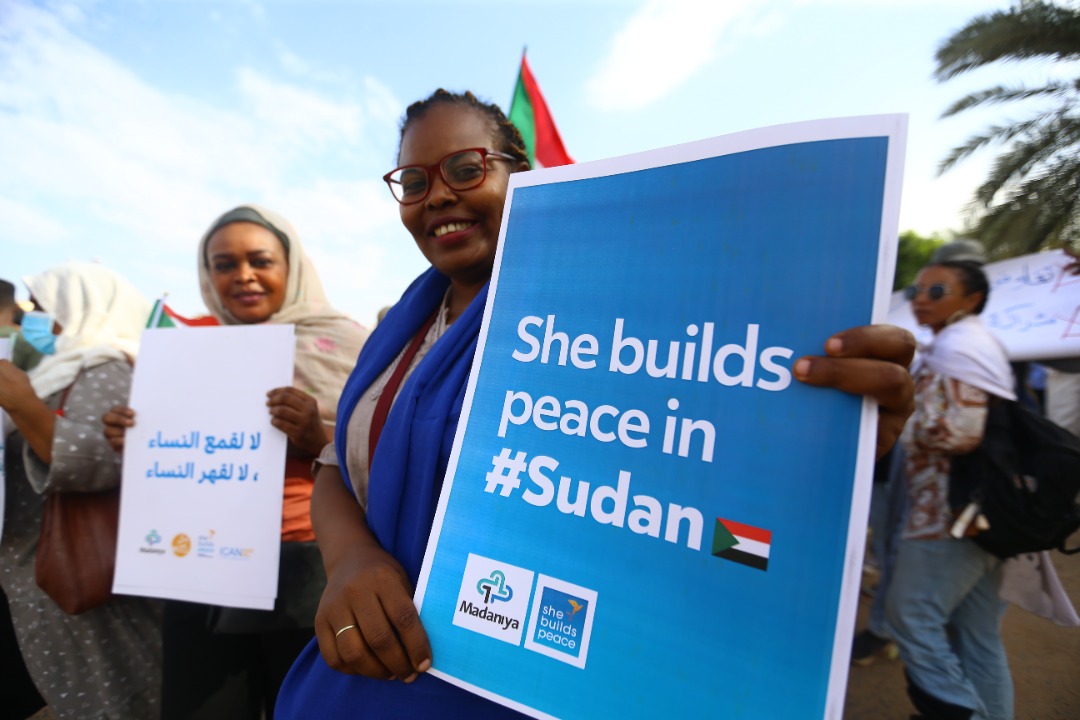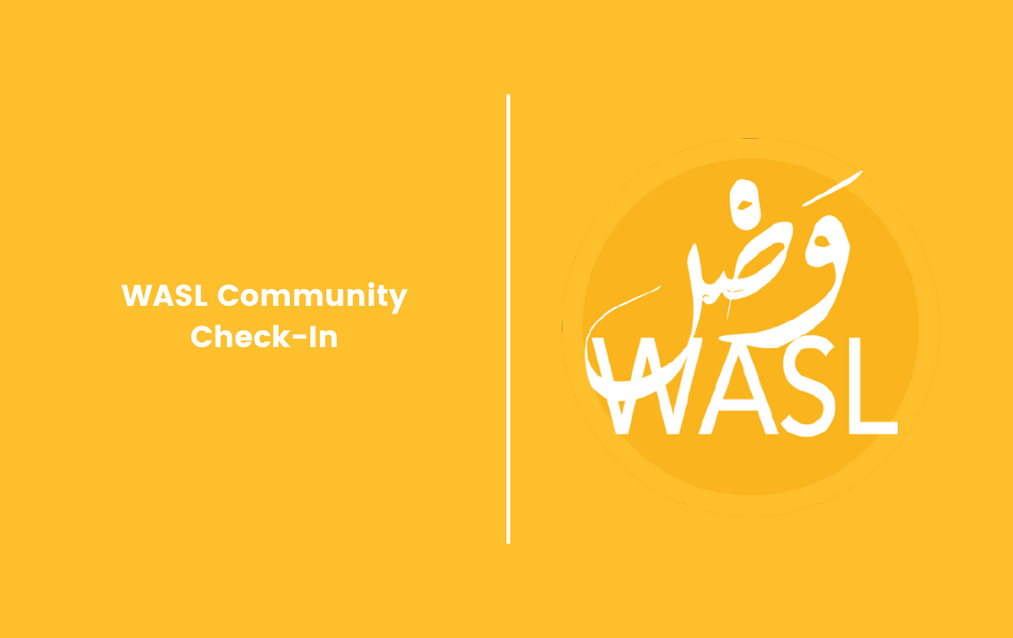The International Civil Society Action Network (ICAN) was invited to attend the Shaping Feminist Foreign Policy Conference at the World Forum in The Hague from November 1-2, 2023. Organized by the Dutch Ministry of Foreign Affairs (MFA), the conference welcomed more than 750 participants from over 40 countries.
On the first day of the conference, ICAN hosted a side event titled: No Feminist Foreign Policy Without Feminist Funding, in partnership with the Global Partnership for the Prevention of Armed Conflict (GPPAC). Our interactive session highlighted four key recommendations to increase financial support for women-led peacebuilding organizations and establish more equitable funding practices:
- Direct Funding to Local Women Peacebuilders
- Grantmaking Based on Partnership and Trust
- Flexibility of Funding in Emergencies
- Institutional Support
The speakers—which included women peacebuilders, intermediaries, and funders—participated in a debate-style conversation over which funding recommendation has greatest potential impact on peacebuilding outcomes. We engaged the audience to vote on the recommendations at the start of the discussion and concluded the event with a poll seeking the audience’s preference on which funding recommendation they would most like to see integrated into a feminist foreign policy.
The panel featured members of the ICAN-spearheaded Women’s Alliance for Security Leadership (WASL): Esther Omam, Executive Director of Reach Out, Cameroon; Abir Haj Ibrahim, Co-Founder of Mobaderoon, Syria; and Mossarat Qadeem, Co-Founder and Executive Director of PAIMAN Alumni Trust, Pakistan, alongside ICAN’s Sanam Naraghi Anderlini and France Bognon. Mirjam Horstmeier from the Dutch MFA, Johanna Hilbert from GPPAC, and Sophie Giscard d’Estaing from Women’s Peace and Humanitarian Fund (WPHF) also brought their perspectives and experiences to the discussion.
The session encouraged radical candor around the barriers and challenges preventing quality feminist funding and highlighted best practices.
1. Direct Funding to Local Women Peacebuilders
“Support women-led organizations because we are at the center of the action. When everyone runs away, we are there.”
– Esther Omam, Executive Director, Reach Out Cameroon
Drawing on her experiences in the context of the Anglophone crisis in Cameroon, Esther Omam opened the debate, putting forward a compelling case for dedicating more funding to women-led peacebuilding organizations globally. She highlighted how locally rooted organizations such as Reach Out are present across conflict cycles, have unique trust and access in communities, and have deep contextual knowledge that international organizations often lack.
“Women are the ones who take the front row of going into their communities to rebuild them and to mend the wounds…before international organizations or governments come in, women are there. Why? Because we do not only act with our heads, but equally we use our hearts.”
– Esther Omam, Executive Director, Reach Out Cameroon
2. Grantmaking Based on Partnership and Trust
“We’ve been saying to donors instead of thinking about ‘appetite for risk’ think about ‘appetite for trust.’ Trust local partners–women peacebuilders–who are risking their lives to serve their communities. They know what is needed, when, and how.”
– Sanam Naraghi Anderlini, MBE, Founder and CEO, ICAN
Championing the second recommendation, ICAN’s Innovative Peace Fund (IPF) Director, France Bognon, advocated for participatory grantmaking processes whereby donors establish formal consultation mechanisms and give decision-making power about funding to the communities that they aim to serve.
“We want to ensure that when donor governments look at the resourcing portion of their feminist foreign policy that they are going to consult the women leading organizations that are directly impacted by this work.”
– France Bognon, Program Director, ICAN
ICAN and GPPAC are leaders in participatory grantmaking, building pipelines of dialogue with partners to understand how their funding models—from proposal to reporting—can best reflect and adapt to suit the operating realities of women peacebuilders.
“GPPAC has been a thought leader in improving peacebuilding financing…we’ve brought together peacebuilders, donors, and financial experts to develop concrete recommendations to shift the power so local peacebuilders are no longer contractors but partners.”
– Johanna Hilbert, GPPAC
3. Flexibility of Funding in Emergencies
The third recommendation put forward in the session centered flexibility in project funding. Flexibility enables women peacebuilders to respond to new and urgent issues, including national disasters or unexpected conflicts.
Notably, this recommendation broadens the definition of peacebuilding work to encompass the intersections between peace, rights, development, and humanitarian interventions, commonly referred to as the “triple nexus.”
“When emergencies happen, we need our international partners who have a triple nexus mandate to value our work and come together to support us.”
– Abir Haj Ibrahim, Co-Founder, Mobaderoon, Syria
Advocating for this recommendation, Abir Haj Ibrahim drew on her experiences leading Mobaderoon’s peacebuilding work in Syria. In February 2023, when devastating earthquakes hit Syria and Turkey, Mobaderoon’s proposed peacebuilding dialogues became inconceivable. She instead adapted her programming, using her access and status as a trusted leader to deliver humanitarian relief and crucial safety information to affected communities. Remarkably, with less than $25,000, Mobaderoon mobilized 500 volunteers and provided emergency rental accommodation for 42 families.
“We did only what we believe that we should do for our community because we have gained their trust during the last 10 years.”
– Abir Haj Ibrahim, Co-Founder, Mobaderoon, Syria
4. Institutional Support
“If you don’t give the institution support, the institution will not be there to sustain what you have actually invested in.”
– Mossarat Qadeem, Co-Founder, PAIMAN Alumni Trust, Pakistan
Mossarat Qadeem took the lead convincing the audience of the need for donors to “fund the organization, not only the project,” including proposal writing, monitoring and evaluation, reporting, staff salaries, accounting, and security.
She explained that when her organization, PAIMAN, was unable to continue its in-person programming during the COVID-19 pandemic lockdowns, institutional support was imperative to sustain their presence on the ground and maintain trust in communities. Esther Omam also provided a valuable example of the value of institutional support. She shared that when the roads to Reach Out’s offices were destroyed by conflict actors, leaving employees vulnerable to security threats and kidnapping, her staff were unable to attend work. However, due to their donor’s flexible funding policy, she was able to have the road repaired and continue their peacebuilding work.
Feminist Funding is Holistic
Closing the event, WPHF’s Sophie Giscard d’Estaing underscored the importance of implementing funding policies which consider all four recommendations—direct funding, trust, flexibility, and institutional support:
“When a crisis hits, women’s organizations are on the frontlines reacting. Giving them flexibility to re-shift budgets and activities not only allows them to respond to the needs of their communities, but also recognizes that they know best based on their networks, their ownership, their sustainability, their connections on the ground, and their reach.”
During the event’s closing poll, the audience re-affirmed that the funding recommendation with the strongest potential for impact was direct funding to women peacebuilders. Based on the debate, institutional support rose to the second highest-ranked audience priority for feminist foreign policy.
Directing resources meaningfully to local women peacebuilders requires changes in policies, procedures, and institutional cultus. Without holistic, flexible, collaborative, trusting funding, women peacebuilders can only achieve a fraction of their potential impact. For foreign policy to truly be feminist, it must center the needs of women and communities, including by transforming most aspects of how funding has traditionally been disbursed.














